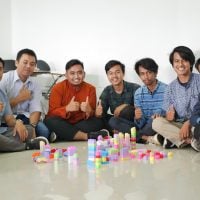Deadline: 11-Feb-24
FP2030 will issue a series of competitive “Challenges”, inviting civil society organizations (CSOs), including youth-led organizations, entrepreneurs, feminist organizations, and other nontraditional actors to apply to receive small grants in order to implement locally-led innovations to solve a wide range of key problems facing the family planning movement and services.
Objective
- The objective of this Challenge is to provide catalytic small grants to civil society organizations, youth-led groups, faith-based organizations and nontraditional actors in nine countries in Sub-Saharan Africa.
- The expected outcome of this Challenge is to enhance budgetary allocations for family planning, so that countries are increasingly able to sustainably finance their family planning work and transparently track their expenditures, in line with their financial commitments to FP2030.
- Through this Challenge, funding recipients will also receive earmarked funds for financial and technical support to strengthen their organizational capacity, share their lessons learned and take advantage of networking opportunities.
Funding Information
- The total amount available as part of this Challenge is $420,000.
- The total budget for your grant cannot exceed $60,000, and be structured as follows:
- Program costs – This makes up the bulk of the grant’s total budget. Program costs include approved project activities directly responding to the Request for Proposal’ priorities. They also include associated staffing costs (up to 30% of all Programs costs), and administrative costs (up to 10% of all Programs costs).
- Capacity strengthening costs – Partnership Fund’s recipients will receive earmarked funds for organizational capacity strengthening as part of their award. On average, they expect these funds will amount to 10% of the total grant’s amount. Specific organizational strengthening needs will be identified by funding recipients at the beginning of their project through a self-assessment process, and progress will be monitored throughout the implementation period.
- Learning and networking costs – Partnership Fund’s recipients will also receive earmarked funding to participate in learning and networking opportunities On average, they expect these funds will amount to 10% of the total grant’s amount. Specific knowledge sharing and learning opportunities will be identified by Fund recipients at the beginning of their project, in close collaboration with FP2030’s Support Network.
- Projects must be implemented within 12 months.
Expected Outcomes
- The Partnership Fund supports local civil society organizations to advance the following key expected outcomes:
- Family planning financing gradually becomes sufficient and resilient, with commitment-making countries increasingly able to sustainably finance their family planning work and transparently track their expenditures.
- Political commitment and policy environment are expanded and consistently supportive, leading to a more enabling environment for rights-based family planning at the national and subnational levels.
- Health systems meet the information, service, and supply needs of all individuals everywhere.
- The quality of family planning services for adolescents and young people is improved, including for those furthest behind and in humanitarian settings.
- The capacity of local and community-based actors to meaningfully contribute to the continuation of family planning services during humanitarian crises is strengthened.
What they are looking for?
- As a challenge fund, they evaluate applications through a competitive process. Their funding approach is designed to be adaptable, allowing smaller and emerging organizations to access financial and technical support.
- The primary goal is to bring about lasting and sustainable change. Nevertheless, they acknowledge that concerted efforts through collective actions are the most effective means to achieve this transformation. Therefore, it is crucial to comprehend your connection to the broader movement and showcase your commitment to contributing to the shared goal of change.
- Consistent with FP2030’s gender strategy, they particularly prioritize funding organizations that have a demonstrated commitment to gender equality, as evidenced by their mission statement or programmatic objectives
- Anticipating a substantial influx of applications in this request for proposals, they have the capacity to fund approximately 10 to 12 grants. Hence, they strongly urge all applicants to meticulously review the following guidance to enhance their chances of success:
- Exhibit a comprehensive grasp of the issue you intend to tackle.
- Formulate clear and achievable objectives.
- Recognize and collaborate with key influencers and authorities empowered to facilitate positive change.
- Demonstrate awareness of ongoing initiatives in the same setting.
- They have a particular interest in supporting projects that meet the following criteria:
- Originate from small, grassroots organizations facing challenges in accessing funding, with a priority for women-led and youth-led organizations.
- Introduce a new idea or innovative approach, aiming to gather insights into effectiveness.
- Implement promising practices that have demonstrated initial success.
Eligible Countries
- Projects must be implemented in one of the following countries: Cameroun, Central African Republic, Liberia, Mali, Mozambique, Rwanda, Tanzania, Togo and Zimbabwe.
Eligibility Criteria
- Only civil society organizations from the Global South are eligible to apply. Your organization must be located in, and implementing a project in one of the Challenge’s eligible countries.
- They recognize the broad scope of civil society and the wide range of organizations, actors and coalitions it encompasses. Under FP2030’s definition, civil society organizations can include:
- Community groups
- Youth Groups
- Non-governmental organisations
- Indigenous groups
- Faith-based organisations
- Civil society coalitions
- Research institutes
- Social enterprise groups
- Public-private partnerships
- Communications and media groups
- Professional associations
- They do not expect to directly support large international nongovernmental organizations during the Challenge. International non-government organizations may apply as a partner within a coalition or consortium of partners led by a southern-based organization where relevant and where they demonstrate good value for money.
- FP2030 will prioritize nontraditional actors, including youth-led groups, community-based organizations, faith organizations, LGBTQ groups, and feminist organizations.
- FP2030 will prioritize funding organizations operating at the subnational level.
- Your organization will need to be registered in the country you are planning to implement your project in, and hold a bank account under its name.
Ineligible
- FP2030’s won’t be able to consider funding for applications that:
- Include direct and grassroots lobbying activities, defined as follows:
- Direct lobbying: Communication with a legislator that expresses a view about specific legislation.
- Grassroots lobbying: Communication with the public that expresses a view about specific legislation and includes a call to action.
- Focus solely on unclear awareness-raising or ‘sensitization’ activities without a well-defined influencing and follow-up strategy.
- Include the purchase and/or distribution of contraceptive products.
- Are not realistic or feasible within the specified timeframe or budget.
- Include direct and grassroots lobbying activities, defined as follows:
For more information, visit FP2030.









































